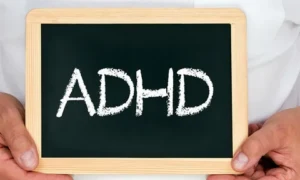
Welcome to a journey of understanding and taming the rollercoaster of emotions that come with Bipolar Disorder. In this blog post, we will dive into the complexities of this condition, explore treatment options from traditional to alternative therapies, and discuss how lifestyle changes can support those living with Bipolar Disorder. Let’s break the stigma surrounding mental health together and discover ways to manage mood swings effectively. So, buckle up as we embark on this empowering exploration!
Understanding Bipolar Disorder: What is it?
Bipolar Disorder is a mental health condition characterized by extreme mood swings that can range from manic highs to depressive lows. These mood shifts can disrupt daily life and relationships, making it essential to understand the nature of this disorder.
Individuals with Bipolar Disorder may experience periods of elevated energy, impulsivity, and heightened creativity during manic episodes. Conversely, depressive episodes are marked by feelings of sadness, hopelessness, and low energy levels.
There are different types of Bipolar Disorder, including Bipolar I, Bipolar II, Cyclothymic Disorder (Cyclothymia), and other specified and unspecified bipolar disorders. Each type has its unique features in terms of the duration and intensity of mood episodes.
It’s crucial to seek professional help for an accurate diagnosis if you suspect you or someone you know may be experiencing symptoms of Bipolar Disorder. By understanding the complexities of this condition, individuals can better navigate their treatment journey towards stability and wellness.
The Different Types of Bipolar Disorder
Bipolar disorder isn’t a one-size-fits-all condition; it comes in various forms. The most common types are Bipolar I, Bipolar II, and Cyclothymic Disorder.
Bipolar I is characterized by manic episodes that last at least seven days or being severe enough to require immediate hospital care. Depressive episodes also occur.
Bipolar II involves a pattern of depressive and hypomanic episodes but no full-blown mania like in Bipolar I. Hypomania is less intense than mania but still disrupts normal functioning.
Cyclothymic Disorder consists of numerous periods of hypomanic symptoms as well as periods of depressive symptoms lasting for at least two years (one year in children and adolescents).
Understanding the different types of bipolar disorder is crucial for accurate diagnosis and tailored treatment plans. Each type presents its unique challenges and nuances, emphasizing the importance of personalized care strategies.
Common Symptoms and Triggers
Bipolar disorder is characterized by extreme mood swings that can range from manic highs to depressive lows. Common symptoms of bipolar disorder include intense mood swings, changes in energy levels, difficulty concentrating, irritability, impulsivity, and disrupted sleep patterns.
Triggers for bipolar episodes can vary from person to person but may include high-stress situations, major life changes, disruptions in routine or sleep patterns, substance abuse, and even certain medications. It’s essential for individuals with bipolar disorder to identify their specific triggers to help manage their condition effectively.
Recognizing the early warning signs of an impending episode can also be crucial in preventing full-blown manic or depressive episodes. By understanding the common symptoms and triggers associated with bipolar disorder, individuals can work towards managing their condition proactively and seeking appropriate treatment when needed.
Traditional Treatment Options for Bipolar Disorder
When it comes to traditional treatment options for bipolar disorder, medication plays a central role in managing symptoms. Mood stabilizers like lithium are commonly prescribed to help regulate mood swings and prevent manic episodes. Antidepressants may also be used cautiously in combination with mood stabilizers.
Additionally, antipsychotic medications can help manage severe manic or depressive symptoms. These medications work by targeting the neurotransmitters in the brain that are believed to play a role in bipolar disorder. It’s important for individuals with bipolar disorder to work closely with a psychiatrist to find the right medication and dosage that works best for them.
Therapy is another key component of traditional treatment for bipolar disorder. Cognitive-behavioral therapy (CBT) and psychoeducation can help individuals learn coping strategies, recognize early warning signs of mood shifts, and develop healthy habits. Family therapy may also be beneficial in improving communication and support systems for those living with bipolar disorder.
Alternative and Complementary Therapies for Managing Bipolar Disorder
When it comes to managing bipolar disorder, traditional treatments like medication and therapy are commonly prescribed. However, some individuals may seek alternative or complementary therapies to complement their existing treatment plan.
One such option is mindfulness-based practices, which can help individuals with bipolar disorder cultivate awareness of their thoughts and emotions. This can lead to better emotional regulation and mood stability.
Acupuncture is another alternative therapy that some people find beneficial in managing symptoms of bipolar disorder. By stimulating specific points on the body, acupuncture aims to restore balance and promote overall well-being.
For those interested in a more holistic approach, incorporating activities like yoga or tai chi into their routine can be helpful. These mind-body practices focus on relaxation techniques and physical movements that can improve mood and reduce stress levels.
It’s important for individuals considering alternative therapies to consult with a healthcare provider before making any changes to their treatment plan. Working closely with a qualified professional will ensure that all aspects of care are coordinated effectively for optimal results.
Lifestyle Changes to Support Treatment
Living with bipolar disorder can be challenging, but incorporating lifestyle changes can greatly support treatment. Regular exercise has been shown to help manage mood swings and reduce stress levels. Whether it’s going for a walk, practicing yoga, or hitting the gym, finding physical activities that you enjoy can make a difference in your overall well-being.
Maintaining a consistent sleep schedule is crucial for managing bipolar symptoms. Aim for at least 7-9 hours of quality sleep each night to promote stability in your mood. Additionally, establishing healthy eating habits by consuming nutritious foods like fruits, vegetables, whole grains, and lean proteins can contribute to better mental health.
Limiting alcohol and caffeine intake is essential as they can disrupt sleep patterns and trigger mood fluctuations. It’s also important to create a strong support system by surrounding yourself with understanding friends and family members who encourage your treatment journey. Practicing relaxation techniques such as mindfulness meditation or deep breathing exercises can help alleviate stress and improve emotional balance.
Breaking the Stigma: Talking about Mental Health and Seeking Help
Mental health is an essential part of our overall well-being, yet there’s often a stigma attached to discussing it openly. People with bipolar disorder may face judgment or discrimination due to misconceptions about their condition. It’s crucial to break this stigma by having open and honest conversations about mental health.
Seeking help for bipolar disorder should be seen as a sign of strength, not weakness. Just like any other medical condition, receiving treatment and support is vital for managing symptoms effectively. Encouraging individuals to seek professional help from experts like Pushpamindcare can make a significant difference in their journey towards wellness.
By sharing personal experiences and spreading awareness, we can create a more supportive environment for those living with bipolar disorder. Let’s normalize discussions around mental health so that seeking help becomes as natural as seeking treatment for any other illness.
Conclusion
In the journey of navigating bipolar disorder, it is crucial to remember that there are various treatment options available to manage the condition effectively. Whether opting for traditional methods or exploring alternative therapies, finding the right combination tailored to individual needs can make a significant difference in improving quality of life.
Seeking support from mental health professionals like Pushpamindcare and specialists like Dr. Samyuktha in Bangalore can provide valuable guidance and personalized care. Remember, managing bipolar disorder is a continuous process that requires patience, understanding, and proactive steps towards holistic well-being.
By breaking the stigma surrounding mental health and openly discussing challenges faced with bipolar disorder, we can create a more supportive environment for those affected. Together, let us strive towards promoting awareness, acceptance, and compassion for individuals dealing with bipolar disorder.
Remember that seeking professional help from experts like Dr. Samyuktha at Pushpamindcare for bipolar disorder treatment in Bangalore is crucial. Embrace self-care practices daily to maintain balance in your life and prioritize your mental health above all else.
















